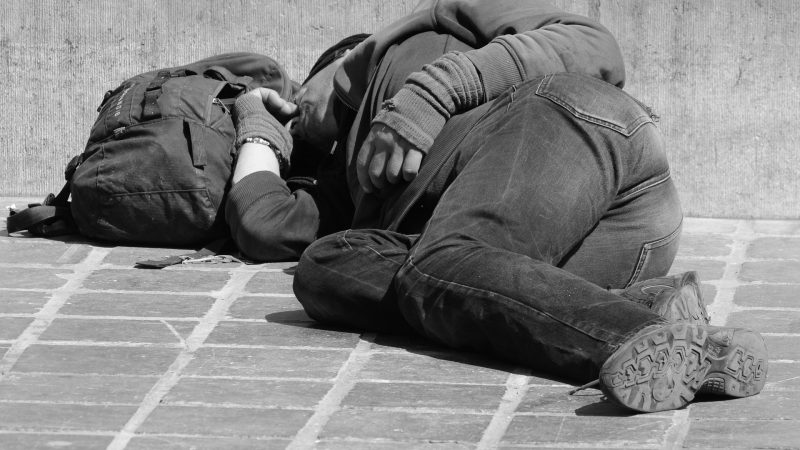By Rich Phillips, CNN
Fort Lauderdale, Florida (CNN) — Sean Cononie bounded out of the back of an ambulance ahead of most of the other volunteers. A bullhorn in his hand, he was, in a sense, the pied piper.
“If there’s anybody out here, that wants the swine flu vaccine, please come over here,” he said.
And come they did.
Outside Fort Lauderdale’s main library, a crowd started to build, and soon about a dozen homeless people were rolling up their shirt sleeves — in the middle of the street — for the H1N1 vaccination.
“You stop spreading the germs,” Cononie said. “Because if a homeless person gets positive for the swine flu, they get sick, they go into a gas station and use the bathroom, transfer those germs to a public bathroom, [then] mom and dad come in with little ones, use that bathroom — boom. Bingo. Contagious. Swine flu.”
The volunteers are with the Homeless Voice — a nonprofit homeless advocacy center that also runs a shelter in Hollywood, Florida. They’ve hit the streets for about three weeks to vaccinate the homeless population in Broward County.
They requested the vaccine through the Florida Department of Health to help part of a population that the Centers for Disease Control and Prevention calls an at risk group. Many homeless people often have untreated medical conditions, and the lack of sanitary conditions makes it easier for them to catch the virus.
So far, the group has vaccinated about 300 homeless people
“Some have high blood pressure, some are alcoholics and are more susceptible to the flu, the seasonal flu, and the swine flu,” said Dr. Chad Frank, a family practice physician who is a volunteer.
“We’re protecting them, and we’re also saving the emergency rooms here as well from being overloaded with potential patients, swine flu patients.”
Wearing a yellow reflective T-shirt, Frank spends his nights on the street during the vaccination effort.
“I think it’s needed,” he said. “And believe it or not, it’s fun. That’s why I’m a doctor.”
Russell Ahamed was one of the first people in line. He lives in the park next to the library in downtown Fort Lauderdale.
The volunteers took his temperature to make sure he wasn’t running a fever and took his name down so he could be entered into a Department of Health database.
“I appreciate this. There’s not a whole lot of people that come by and do something like this,” Ahamed said.
“I know people can die from [the flu].”
But on this night, not everyone was able to get the shot.
William — the only name he gave to volunteers — was ready and willing but not able.
Alcohol had gotten the best of him, and he could no longer stand. Fearing a possible bad reaction to the vaccine, the volunteers would not give it to him. Calmly, Cononie leaned down to talk to William, who was sitting on the grass, and explained why they couldn’t vaccinate him then.
“William, I’m gonna put something in your bag. It’s a piece of paper,” Cononie said.
“When you wake up in the morning, promise me you’re going to look for this piece of paper, OK? It says our phone number. Call us in the morning. We’ll come back and give you a shot when you’re a little more sober.”
William insisted, “I need the shot now.”
Cononie replied, “Well, we don’t think tonight’s a good night because you have a lot of alcohol in you.”
The volunteers, who travel with a police escort in case they encounter any situation they’re not equipped to handle, described the homeless as a forgotten population.
Lee Engels is newly homeless. He lost his trailer and his construction job in Martin County, Florida, and headed south to Fort Lauderdale, he said. He’s been homeless for three weeks, and he’s trying to stay sober.
“It’s tough out here, but it’s how you make it,” Engels said, rolling up his sleeve to get the vaccine injection.
The volunteers said there’s no way to know how much of an effect they are having in stopping the spread of H1N1, but they believe they are doing a public service.
“A true blessing,” Engels agreed. “You don’t have to go to a hospital and pay the bill.”


